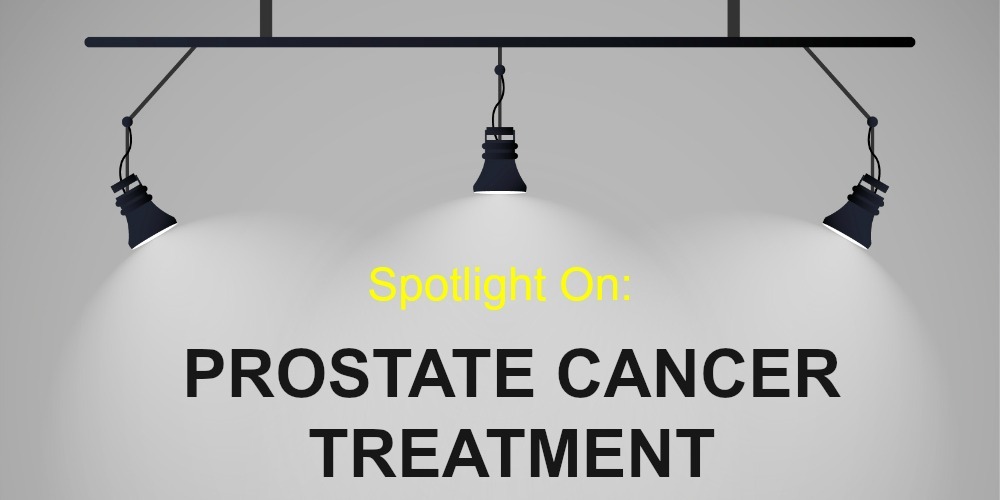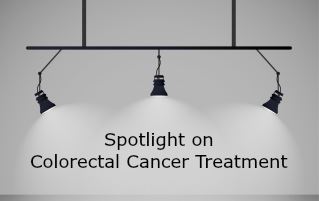Spotlight On: Prostate Cancer Treatment

In the UK, over 47,000 men are diagnosed with prostate cancer every year, with 10,800 men dying from the illness- that’s one every hour.
1 in 8 of men will get prostate cancer in their lifetime, and 1 in 8 of men will require treatment to fight the disease according to the leading charity, Prostate Cancer UK.
It can be a stressful time having to cope with the idea of surgery and drug therapies, whilst dealing with uncertainty and all the other emotions that come with a cancer diagnosis.
To help you understand your options, Alivia has compiled together information all in one place from the available traditional treatments you might expect when you begin your care process, through to new and exciting treatments that are beginning to emerge at the forefront of prostate cancer treatment- but your treatment will be defined by the stage of your disease and reflects the recent guidelines.
Treatments for Local Prostate Cancer

Prostate Cancer Surgery
If your cancer has remained solely within the prostate, or sometimes if it has only spread to areas outside of the prostate, a surgical procedure called a radical prostatectomy may be recommended.
This option involves the complete removal of the prostate and seminal vesicles in an attempt to remove the cancer from the body and stop it spreading any further.
This is a major operation which comes with its own issues, therefore this more likely recommended for younger patients who are less likely to experience complications.
The surgery can also produce side effects including impotence in around 70% of men who undergo the procedure.
Radiation Therapy
The two most common treatments involving radiation include external radiotherapy and brachytherapy.
Radiotherapy (IMRT, dose-escalated intensity-modulated radiation therapy) involves X-ray beams being directed towards the prostate from outside of the body and this will damage the cancer cells and stop them from growing and spreading.
The problem with this type of treatment is that the X-ray beams do not stop at the prostate- the radiation also affects healthy cells which can lead to various side effects, including impotence and urination problems.
Depending on the extent of your cancer, permanent seed brachytherapy is another option.
This involves tiny radioactive seeds being implanted into your prostate, mediating low-dose permanent irradiation, and similarly to the radiotherapy, destroying the cancer cells.
Therapy for Locally Advanced Cancer

Hormonal Therapy
Whilst it won’t cure prostate cancer on its own, hormone therapy can reduce the size and growth of the cancer by removing testosterone as a ‘food source’.
Testosterone is the male growth hormone and doesn’t usually affect the body in a negative way.
However, in cases of cancer, the testosterone can lead to tumour growth and so by removing testosterone from the blood- either through the removal of the testicles or an implant- it reduces its effects anywhere the cancer is in the body.
Hormonal Treatment Combined with Chemotherapy
This strategy is usually considered as second line therapy being more effective however more aggressive.
Treatment includes both androgen deprivation and cytostatic influence that reduces cell proliferation.
As chemotherapy of any cancer type, this treatment is frequently associated with side-effects.
Therapy for Locally Advanced Cancer

The future of prostate cancer treatment is aiming far beyond the current standard of care.
New drug combinations and experimental procedures are often regarded as an uncertain choice but it is hard to deny the effects that they can have on patient care.
Therapy of CRPC (Castration-Resistant Prostate Cancer)
This situation requires special consideration.
Sometimes the prostate cancer cells become independent to hormonal (androgen) stimulation and tumour growths progressively during therapy due to, for example, specific single or combined genetic alterations.
Recently several new drugs where developed and are being introduced in clinical practice:
Zytiga
The National Institute for Health and Care Excellence (NICE) invited Janssen, the company manufacturing Zytiga, to submit evidence for the clinical and cost effectiveness of the drug in combination with another drug- prednisone/prednisolone (AAP)- compared with the watchful waiting for patients who haven’t undergone chemotherapy with aggressive prostate cancer.
This approach has been successfully evaluated in a set of clinical trials.
Xofigo
NICE, the health watchdog, has recently confirmed that Radium-223 dichloride, which is also known as Xofigo, is cost effective for use on the NHS.
The drug is able to target prostate cancer which has spread to the bones and uses alpha particles to destroy the cancerous cells.
Previously, this drug was not recommended for clinical use but the review into its adoption comes with great relief.
Heather Blake, the Director of Support at Prostate Cancer UK, has said that this announcement “is an important victory for men whose prostate cancer has spread to the bone”.
“NICE’s decision means that these men will now be able to benefit from routine access to radium 223 which can often be their only viable treatment option for reducing the pain and distress caused by the cancer in their bones.”
Combination Therapies
New research is always being undertaken with various treatments entering trial stages.
One hopeful treatment that could soon be a feature of a clinical trial has recently emerged out of research from the University of Glasgow.
The researchers from the university’s Institute of Cancer Sciences had argued that whilst radiation therapy is already used, “the most efficient use of radiotherapy is yet to be defined”.
They have found that by sensitising prostate cancer cells to radiation using chemotherapeutic treatments such as inhibitors of DNA repair and stress response proteins, radiation treatments are significantly more effective.
The drugs, which are knows as PARP inhibitors, are currently in clinical trials and bode well for the future of therapeutic strategies.
Proton Beam Therapy
Another important pioneering treatment comes under the name ‘Proton Beam Therapy’.
This method uses sub-atomic particles which are fired at the prostate, and similarly to radiation therapy, this beam kills the cancer cells.
However, unlike conventional methods, the protons stop once they reach the prostate meaning that the surrounding healthy areas are undamaged which is a significant benefit.
Currently, NHS England has “concluded that there is not enough evidence to make the treatment available at this time” which for many has been seen as an annoyance.
However, the NHS does sometimes send selected patients abroad to receive treatment but this limits those who aren’t seen as requiring it.
Access on the NHS is difficult given the various criteria that has to be met regarding the disease progression and the necessity for various referrals.
For those who patients who aren’t selected they have to arrange their own treatment including finding a centre, and arranging travel and living during the duration of the therapy.
If you are selected by the NHS, the treatment, travel and accommodation is funded for you but if you aren’t, you have to make the payments.
However, whilst in countries like the U.S, a popular destination for PBT patients, where the therapy can cost up to £100,000, European countries can offer much lower prices of around £17,000 with the potential to be reimbursed through European directives regarding international healthcare.
A Word from Alivia

The Managing Director of Alivia, Richard Kensett commented:
“These more recent treatments like proton beam therapy are exciting for our clients because they are not always known to most patients, let alone accessible.”
“At Alivia we are able to gather the best prostate cancer specialists from around the globe, and can get clients access to new cutting edge technologies like PBT which places us in a good position to help those who are not confident in the direction of their care”.
“New research on prostate cancer is happening on a regular basis all over the world so it can be hard for the standard GP or consultant to keep up, but at Alivia our research team are focussed on medical research and are tasked with making sure we can offer the best to our clients.”
*Please note, Alivia is a health research and management consultancy, while the information above is believed to be accurate at the time of writing, you should always consult a doctor before considering any type of treatment.
Want to know more on how to get access to world leading doctors and new cancer treatments?
Read more about our Second Opinion Service
Creatives designed by freepic.com




